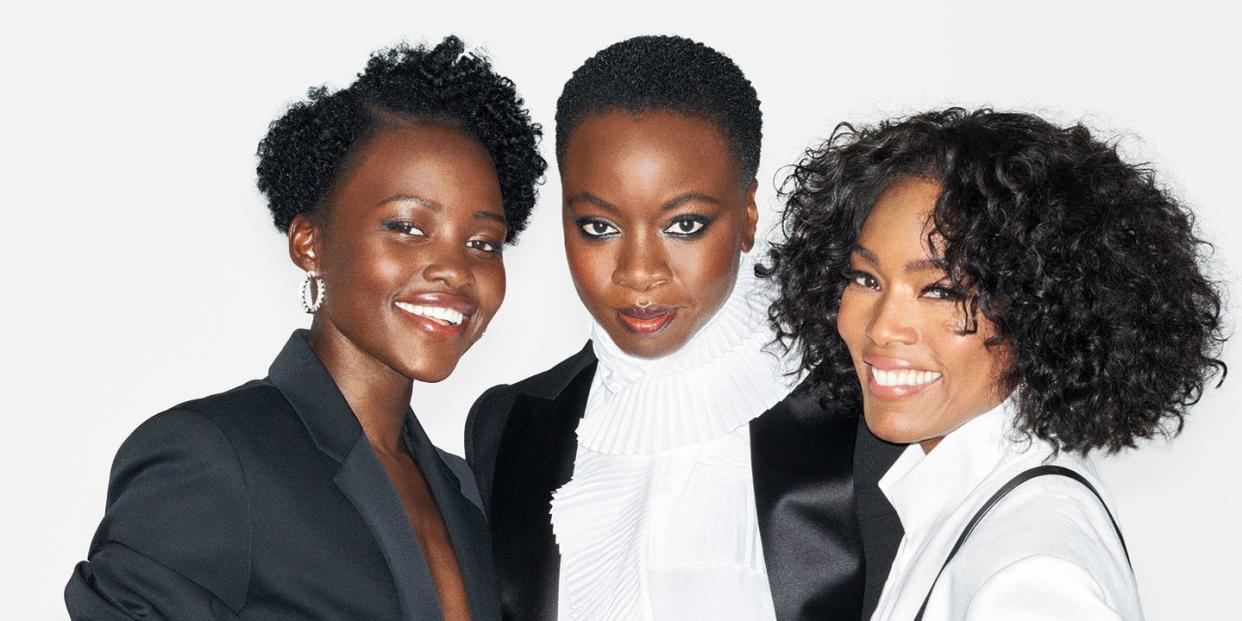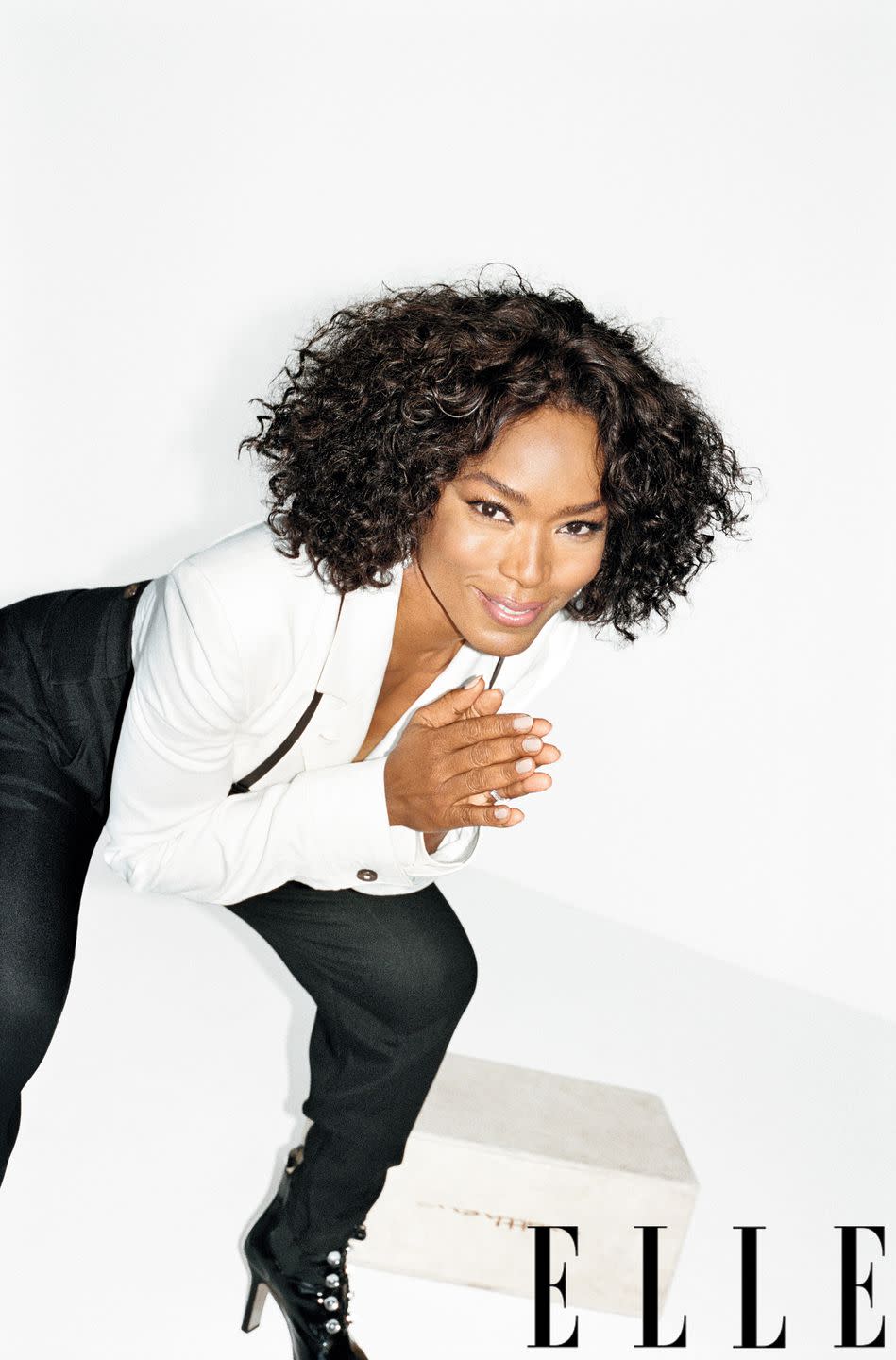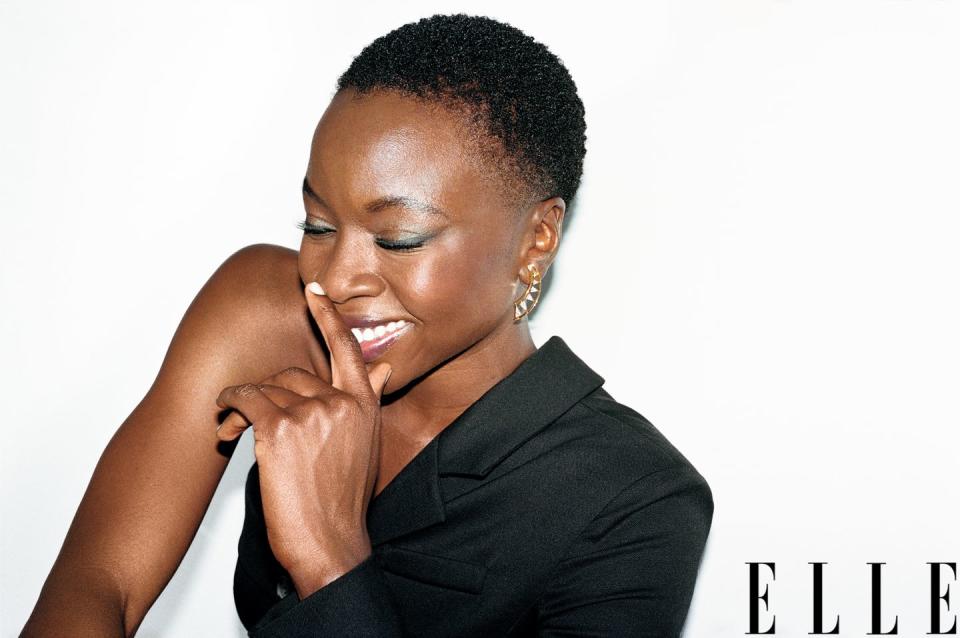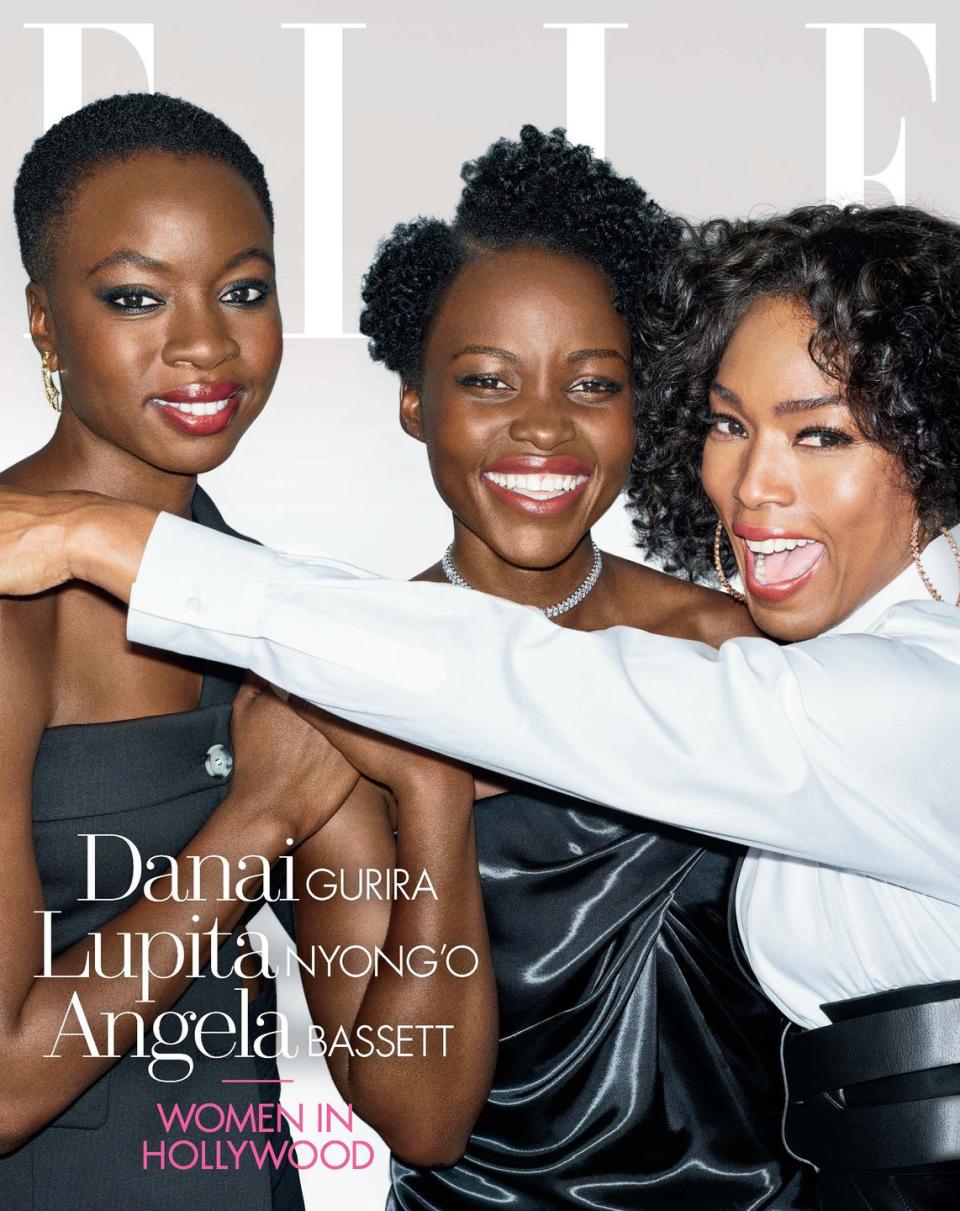The Women of Black Panther Are the Real Stars

When Black Panther hit theaters in February, it wasn’t just an instant classic. It was a major cultural event that would go on to become the country’s highest-grossing superhero movie of all time. But beyond numbers, the film offered something even bigger: a divine alternate reality in which black women weren’t half-baked tropes or superficial emblems of empowerment. This was a blockbuster with an all-star coalition of black actresses in leading roles-a vision hardly ever seen onscreen.
“The women were integral to the storytelling and the wisdom that the main character possessed,” says Angela Bassett, referring to Chadwick Boseman’s King T’Challa, the mild-mannered heart of Wakanda, a fictional African nation that serves as the film’s setting. Bassett, who plays T’Challa’s mother, Ramonda, also happens to have the rare distinction of costarring in both the movie of the summer (Mission: Impossible–Fallout), and this, the most talked-about film of the year. T’Challa seeks the women’s help and counsel, and they have answers-and sometimes they save the day, Bassett adds. “It was really important in terms of the representation of black feminine strength.”

Bassett’s Black Panther costar Danai Gurira, whose presence-whether in an indie film (Mother of George) or a dystopian TV series (The Walking Dead)-tends to swallow the screen, offers the most vivid display of physical might as Okoye, the king’s adviser and general, who steers an army of female soldiers called the Dora Milaje. During a fight sequence set in a South Korean casino, Gurira’s Okoye literally snatches her own wig while performing warrior pirouettes in combat (and on top of that, while wearing a gown). “I loved doing that, from the minute she’s wearing that wig and complaining about it, to the minute she gets rid of it very pragmatically,” Gurira says. “That spoke to so many things about feminine aesthetics.” Overall, Gurira appreciated how Wakanda, as a society, “was celebratory of everyone equally [regardless of gender]. You see that in my character. She’s able to excel.”
Speaking of excelling, after winning the Oscar for Best Supporting Actress in 2014 for 12 Years a Slave, Lupita Nyong’o has expertly segued from box-office gold (Star Wars) to Broadway (the Gurira-written and Tony-nominated play Eclipsed) to the Marvel realm, in which she plays Nakia, a tactical spy who enchants T’Challa and goes rogue when the king’s African American adversary, Erik Killmonger (Michael B. Jordan), takes the throne. “Nakia was a departure from the character you see in the comic books. She is an independent woman and a bit of a rebel but also a loyalist to her country,” Nyong’o says. “I am also someone who depends on my family and friends and feels a connection to my people, and maybe has a sense of responsibility to make them proud. So I really related to that balancing act within oneself.”

In addition to this power trio are Shuri, the shrewd young mastermind who leverages Wakanda’s secret reserves of precious vibranium to turn the country into a futurist utopia, played by Letitia Wright (featured in our roundup of promising up-and-comers in last year’s Women in Hollywood issue); and Ayo (Florence Kasumba), a stand-out Dora Milaje fighter. Very early on, it becomes clear that while T’Challa may be king, it’s the women who command the kingdom and ultimately save Wakanda from crisis. “In our story, the emphasis is on many different women holding their own space,” says Nyong’o, describing the film as “a Marvel universe that is unapologetically black.”
On opening night and beyond, fans dressed in cosplay, racked up multiple viewings, and flooded social media, which helped Black Panther earn over $700 million in the U.S. “I really do believe in the power of excellent storytelling transcending culture and creed,” Gurira says. Bassett says of the film’s impact, “We all felt the anticipation but had no idea how it would mushroom, or that it would be so global and smash whatever preconceived notions we’ve heard for decades-that stories like this about these people won’t travel as well or won’t generate financially on such a huge scale.”

More recently, the film has entered the 2019 awards-season fray. There’s talk that Black Panther deserves to be in contention for Best Picture. Whatever the outcome, it has succeeded where so many superhero movies have failed: It built a fairy-tale world with real stakes that was contemporary yet rooted in history and had women moving the story forward-at times, so much so that it felt like Wakanda was their world, and everyone else just lived in it.
This article originally appeared in the November 2018 issue of ELLE.
('You Might Also Like',)

